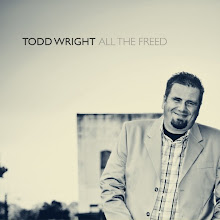 Last week, we touched on the need for more and better "teaching" from worship leaders. Over the next few posts, we'll be hitting this issue and trying to find some practical helps to bless and grow what you all are you doing on your platforms.
Last week, we touched on the need for more and better "teaching" from worship leaders. Over the next few posts, we'll be hitting this issue and trying to find some practical helps to bless and grow what you all are you doing on your platforms.
The reality is that we need do a better job of instructing our folks as to what's going on when we get together to give praise to God. Over the next couple of weeks, I'll be interviewing a few worship leader friends that excel in this aspect. The guys we'll be talking to are brilliant communicators and have countless hours of experience in pastoring congregations in worship.
One aspect we'll be talking about is how to get started. What do you do if you've never really been much of a "teacher" from the stage, but you'd like to do better? These folks we're interviewing have got some great things to say, so I'll go ahead and give you my piddly little advice before the big boys show up.
Let me start by saying that I'm still very new at this. Even though I've led worship for quite awhile, I'm still trying to find my voice in this whole teaching thing. So far, here are some things that tend to work for me.
Use The Set
Teaching works best for me when I can see it in a setlist. This means that I can see and know a particular song is coming and build my teaching around the theme of that particular song. This is probably the easiest way to teach from the stage, since you've got a whole musical selection waiting to come in a support what you've just talked about. And since I'm the one who makes the songlist, that ends up working pretty well. For me and for my church, not all services are necessarily right for a teaching moment, but I look for them constantly. This works even better if you plan your music thematically along with the sermon. If you and the person preaching work together in planning services, this can make the teaching moments really, really good.
Use Scripture
I'm a bit of a dummy. Don't worry. My friends know this, but fortunately, my church doesn't. Why? Because I use scripture. I don't really know enough Hebrew or Rob Bell-esque cool tidbits from Jewish culture or amazing historical quotes to use in my teaching times. I really have very little to say on my own. That's why I use scripture. Using scripture for my teaching time is a win-win. (What church doesn't need more scripture, right?) It keeps me focused and forces me to really work on my scirpture analysis.
Use Your Time Wisely
When I teach from the stage, it's rarely freestyle. You know what that means? It means I practice.
Each time I'm teaching in a set, I make some time in the week leading up to that set where I can get alone and try out my teaching to see how it feels. Let's be honest - worship leaders don't have a lot of free time on stage to ramble, so I want my messages to be clear and concise. Of course, there are lots of times where God prompts me to say something fresh and unplanned, but "planned speaking" also assures me that I'm going to get across exactly what I believe needs to be said. We've probably all got a horror story or two that involves a minister on stage saying something on stage that sounded great in his or her head but came off sounding like utter nonsense.
Use Your Instrument
One of the most common problems for worship leaders is knowing how to end things. Sure, we can do that big chord crash at the end of a tune or segue from song-to-song, but a lot of us don't do so great when we're actually speaking/teaching. If you happen to lead from an instrument, you can drastically improve your "endings" with just a few tips.
First off...make sure your team knows to stop playing while you're teaching. A lot of us have that keyboardists or acoustic guitar player who's GREAT, but who loves to play in every blank space. the instant you start talking, they start playing a little instrumental behind you. Sometimes, it's awesome, but sometimes it's not. If you can get your team to provide you with a little silent backdrop, the ending transition will be a lot better.
Second...wait until you're reaching the end of your talk before you start playing. (If you don't lead from an instrument, you can easily have one of your bandmates do it.) This playing-at-the-very-end prevents your teaching time from seeming like a muzak-filled-emotional-ploy. It also is a fantastic cue to your people - that we're about to sing this song. When folks hear that, they know it's time to sing about what they've learned.
____________________
What we do as worship leaders is important. It's more than just honing our skills and bringing excellence to the music and media. Those things are great, but there's so much more. And while considering that your job is to be "the frontman" may seem petty and very non-religous, it's kinda' true. You've got a platform, you've got a microphone, you've got a team of people and you've got a crowd of folks who trust you and typically take-to-hear the things you say.
Next week, we'll be hearing from some worship leaders that are very good at this teaching thing. I hope you stick around.
6/5/08
PLATFORMS, Part 1
Subscribe to:
Post Comments (Atom)


0 comments:
Post a Comment